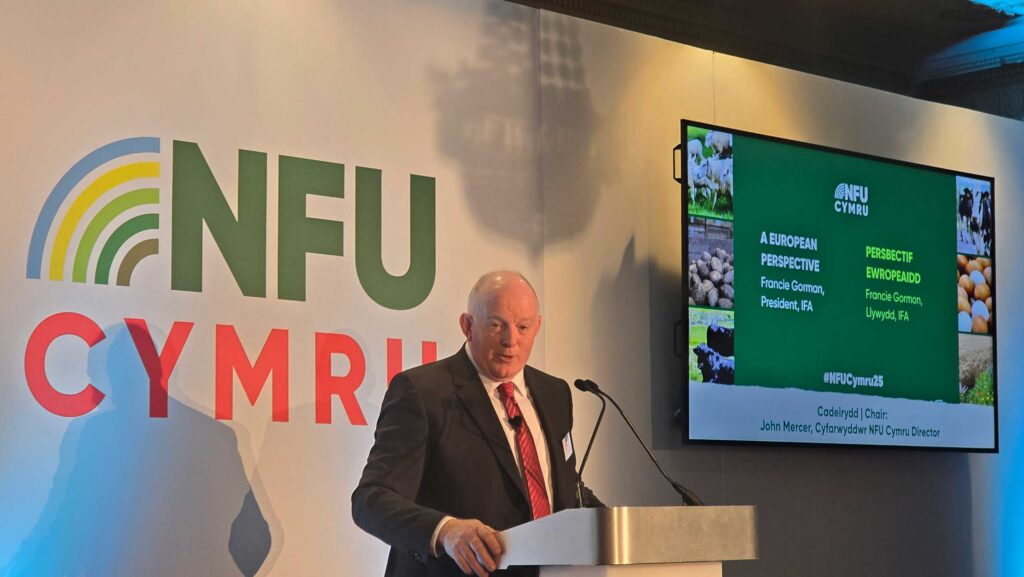Irish farmers say EU ‘green’ policies are harming business
 Francie Gorman © MAG/Annę Dunn
Francie Gorman © MAG/Annę Dunn Green farming policies in the EU have contributed to a decline in livestock numbers in Ireland, resulting in the closure of numerous farming businesses.
Speaking at the NFU Cymru conference in Llandrindod Wells on Thursday (6 November), Irish Farmers’ Association (IFA) president Francie Gorman said he has lost friends and neighbours from the industry because of “a policy of reduction”.
See also: Nutrient Action Plan to put ‘severe strain’ on NI farmers
“Policies of the European Union, they’re coming home to roost. We’ve seen a policy of reduction in production to deliver environmental ambition, particularly over the past 10 years. That has hurt the European agriculture sector greatly,” he said.
Impact of regulations
Mr Gorman added that while he, too, had enjoyed good beef prices over the past six months, this had been due to a reduction of critical mass.
“I know numerous people in my own parish that got out of beef production because they couldn’t sustain it. While we have a good price today, we have it having lost our friends and our neighbours who could not sustain that business.”
Environmental schemes, organic schemes, and regulations surrounding nature restoration laws were responsible for the cutback in production, he said.
“They [the European Union] don’t see that. But we see it every day at farm level, and it’s a huge concern for us,” he added.
Commenting on the challenges faced by Welsh farmers, NFU Cymru president Aled Jones said: “In order to ensure that multiple policies and regulations don’t impinge on Welsh farmers’ ambitions to grow the food and farming sector in Wales, we are calling for an independent review looking at the cumulative impact of regulation and red tape on Welsh agriculture.”
Cost of production
In the past few years, Mr Gorman said, the cost of production has increased by 70-74%, while ex-farm prices have risen by only 34%.
“That’s unsustainable; we can’t handle that; we can’t wear it. The entire burden of regulation is also affecting what’s coming through from Europe,” he told delegates, adding that a significant number of beef finishers who did not buy cattle this time last year are “taking a significant hit to their business now”.
Aligning standards
Irish, Welsh, and UK farmers had a lot in common, especially in producing food to the highest standards in the world in a very high-priced environment.
“We need to be properly compensated for that food. So, I think the one thing we have in common, whether in the European Union or otherwise, is that we need a certain alignment of standards,” he said.
